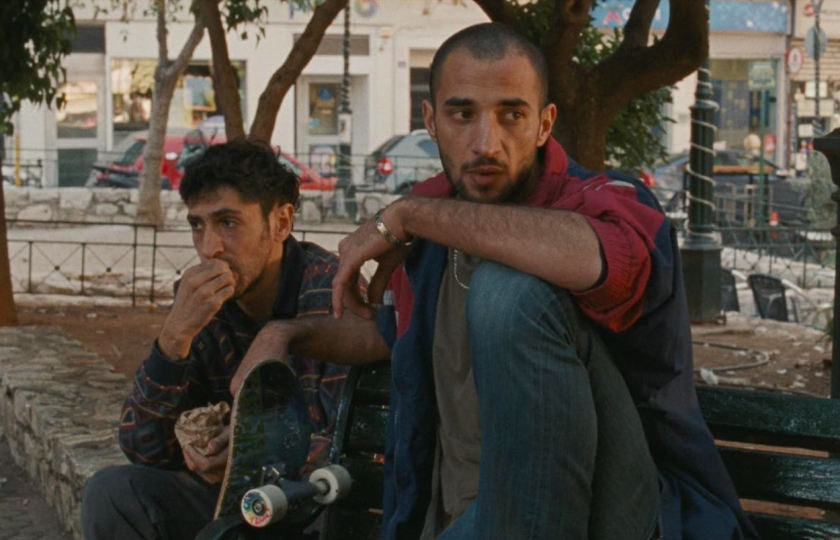The Refugee Movie is rapidly becoming a genre unto itself, with elements of suspense and humanism woven together into something that’s very properly cinematic.
Films like Io Capitano and Green Border, tracking the tragic migrant trail to and through Europe, prick consciences and sweat palms in equal measure, but those two fine examples from last year were made by European directors on helicopter missions, as it were, to raise consciousness and to mine fresh seams of character.
To a Land Unknown is a story of Palestinian refugees actually made by a Palestinian, Mahdi Fleifel, and it’s an instantly engrossing piece of storytelling done to stylish standards. Its maker can take us further yet into the souls of those in desperate flight – the world of being between worlds, the inner and outer hustle of crossing over.
Obviously a good learner when it comes to genre, Fleifel puts swift and jangly narrative to the fore in this debut fiction feature, and lets issues of social justice find their places where they may. The film sits aside from the current crisis in Gaza, which its creation pre-dates, and tells of two young Palestinian refugees on the make in Athens, thieving, scamming and sleeping around to raise the necessary to buy fake passports for Germany.
The bullet-headed Chatila (Mahmood Bakri) is a ruthless optimist, and Reda (Aram Sabbah) is a saggy-eyed skateboarder who’s hooked on drugs and needs propping up at every turn. (Fleifel spent younger years in the Ain al-Hilweh refugee camp in Lebanon before moving to Denmark, and it doesn’t seem co-incidental that “Chatila” is the name of a Lebanese camp visited by a notorious massacre in 1982.)
The opening scene sees the pair nicking a woman’s bag in a park, and they follow this up with fencing expensive trainers and scamming Euros from other vulnerable marks to pay for their onward travel. But as they roam the darkling Athens backstreets, with ancient statues looming Delphically above, they’re also drawn to help an abandoned 13-year-old Palestinian kid (Mohammad Alsurafa), thereby tearing themselves some space for grace, as if in a Robert Bresson movie about miscreancy – fixing the boy’s passage to Italy while taking a hefty cut from the deal themselves.
A hard-drinking Greek woman (Angeliki Papoulia) is drawn into this web as both patsy and humanitarian, and the colourful main cast is rounded out by a smuggling kingpin played by the Ron Perlman-like Monzer Reyahnah. The theme of betrayal and its justifications comes to a head in the two lads’ culminating outrage – a violent kidnap and shakedown of fellow Arab refugees.
All the while, our sympathy for the central duo totters along a knife edge – the circus trick of the best genre artists – and the film looks and sounds great throughout. Bakri as the conscience-riven Chatila is especially good, dreaming of a reunion with his wife and young son at a café they’d run in Germany, his own large desk there to be topped, he imagines, by a commanding ashtray. Dreams large and tiny are the lot of the lost.
Meanwhile, we’re always suckers for crimes born of desperation that come with a sense of the poetic, and the moral cross-currents of well-known anti-hero movies seem obvious influences. The two stuck-together lead characters, tough and dumb, call to mind Harvey Keitel and Robert De Niro in Mean Streets, and in one scene there’s an even more stark homage to the eternal bloke bonding of Midnight Cowboy. But it would be far too much of a theft to give that latter reference away here.













Add comment